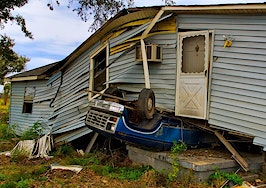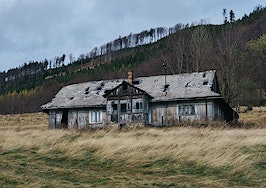Rent price growth across the country rose above 2 percent for the first time since the pandemic started.
According to the latest data released by CoreLogic on Tuesday, nationwide rent for a single-family home rose by 2.1 percent in August. While down from 2.9 percent growth last year, increases over 2 percent have not been seen since April — indicating that the type of recession many feared at the start of the pandemic may not materialize.
The biggest jumps in prices are still for lower-priced properties worth 75 percent or less of a median home in their market — rent prices rose 2.5 percent from last month but are still down from 3.7 percent growth last year. Mid- and higher-priced homes are in line with overall growth.

CoreLogic
“Single-family rent increases picked up pace in August, signaling continued high demand for these property types,” Molly Boesel, principal economist at CoreLogic, said in a statement.
The numbers show that demand for housing remains strong even among economically difficult times. Even renters who are hit hard by the pandemic are still scrambling to pay their rent and hold on to housing arrangements.
“This is in stark contrast to the Great Recession, when rent prices dropped by 5 percent between 2008 — when the market was at its height — and early 2010 when it had reached the bottom,” Boesel said.
As in past months, Phoenix continues to see the largest jumps in prices due to the high number of young professionals moving there for work. Rents in the city rose by 5.8 percent while Arizona’s Tucson and North Carolina’s Charlotte followed closely at 4.8 and 4 percent, respectively.

CoreLogic
In general, cities that have been hit hard by unemployment saw some of the worst effects of the pandemic on its rental and housing markets. Honolulu, Miami and Boston saw drops of 1.4, 0.9 and 0.3 percent, respectively.
Cities that are highly dependent on the tourism and entertainment industry or are home to a large number of university students saw higher unemployment and, as a result, larger drops in rent — a trend that could leave them in the lurch even as the rest of the country picks up again.












